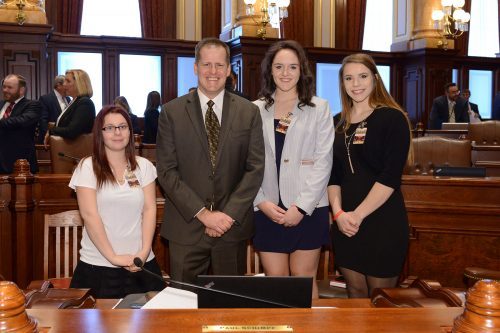| Do You Have a Safety Net? | ||||||||||
| By Rick Warren — Mar 16, 2018 | ||||||||||
“Finally, all of you, be like-minded, be sympathetic, love one another, be compassionate and humble” (1 Peter 3:8 NIV). As a pastor, I see situations daily that nobody should ever have to go through alone. Nobody should ever have to wait in the hospital while a loved one is in life-or-death surgery. No woman should ever have to wait alone for the lab report on a problem pregnancy. Nobody should ever have to wait for news from a battlefield alone. Nobody should ever have to stand at the edge of an open grave alone. Nobody should ever have to spend the first night alone when his or her spouse has just walked out. Life’s tough times and tragedies are inevitable. Each of us will face our share of them. But we don’t need to go through them alone. We need God’s safety net to help hold us up through these difficult times. What is God’s safety net? It is a group of other believers — a handful of people who are really committed to you. We call this kind of group a community. Here’s God’s plan for community: “If one part suffers, every part suffers with it” (1 Corinthians 12:26 NIV). Community is God’s answer to despair. Romans 12:15 expresses a similar idea: “Rejoice with those who rejoice; mourn with those who mourn” (NIV). The first part of that verse is easy. When something good happens to someone, it’s often natural to join in on the party. But when someone is experiencing a tough time, it can seem more difficult. But, really, it’s simple. When you’re going through a crisis, you don’t want advice; you just want somebody to be there to sit with you, hold your hand, put an arm around your shoulder, or cry with you. As Paul tells us, “Therefore encourage one another and build each other up” (1 Thessalonians 5:11 NIV). Encouraging someone else doesn’t always mean giving a pep talk or offering words of wisdom. Sometimes the best kind of encouragement is just sitting in silence, and then waiting and weeping with a friend. Do you have a safety net — a group of fellow Christians you know you can count on in life’s toughest times? If not, go out today and begin building those friendships. The hard times in life are inevitable, and it’s unwise to go into them unprepared. PLAY today’s audio teaching from Pastor Rick >> Talk It Over
|
Pastor Rick Warren: ‘Do You Have a Safety Net?’
OJT
 That’s what they used to call it: on-the-job training. In the professional discipline of architecture, it was common for people to become architects by being an apprentice in an architectural office. After 12 years of apprenticeship, a candidate could sit for a state licensing examination—on-the-job training leading to professional certification.
That’s what they used to call it: on-the-job training. In the professional discipline of architecture, it was common for people to become architects by being an apprentice in an architectural office. After 12 years of apprenticeship, a candidate could sit for a state licensing examination—on-the-job training leading to professional certification.
Over time, a combination of formal education and apprenticeship became the norm. Currently a professional degree, typically a Master of Architecture and two years of internship experience (aka apprenticeship) followed by an examination, is required. This hand-in-glove relationship between formal education and on-the-job training is a powerful one-two punch to prepare people for productive careers in fields ranging from architecture to zoology. Internships and apprenticeships, mandatory or voluntary, paid or unpaid, are important topics of discussion on many university campuses – including what components make internships most valuable.
The combination of formal training with internships in contrast to a more traditional apprenticeship with little classroom exposure is growing. In 2014, President Obama wanted apprenticeships to grow 100% in five years so that by 2019 there would be 750,000 apprentices. President Trump has also authorized a $200 million increase to apprenticeship programs. This issue is nonpartisan and originates from skilled worker shortages nationwide, especially in the fields of construction, healthcare and information technology. The distinction between skilled worker and manager is diminishing. Rather than white or blue collar, light blue is becoming the destination color.
Many college students say hands-on work is “very” satisfying. The intellectual ability to identify, diagnose and solve problems comes in many forms and is in high demand. Inspired education and training allows students to gain experience applicable in any setting. Joseph E. Aoun, in Robot-Proof: Higher Education in the Age of Artificial Intelligence, says that anyone who creates a new “thing” or process becomes invaluable in the marketplace as well as “robot-proof.”
Internships and apprenticeships create appreciation for the consequence of a hierarchy. Organizations are not flat, pancake-like structures. Not everyone is equal. Operational workplaces have workers and decision makers functioning with different roles dispersed throughout. In addition, both up and down the chains of command, accountability and effectiveness flow in both directions. This may be the most important lesson that anyone learns in any work setting. Unlike a college classroom, which is a pancake-like structure where all students are equal and guided by a single faculty member, the workplace demands complex interdependencies. Effective leaders and workers understand this interdependency as necessary to accomplish goals. In formal educational settings, the abilities and accomplishments of an individual are typically elevated above collaboration, as they should be. This makes the combination of the workplace and the schoolhouse powerful.
The apprenticeship model, with indentured servitude mindsets embedded in history, is just that—a historical artifact. Apprentices were functionally important and produced goods or services of value. Today, too many internships rely on and count shadowing, watching and observation as “work.” Such experiences do provide insight and knowledge, but very little experience with the real responsibility for the production of goods, ideas or services; in a word—work. Room to Grow: Identifying New Frontiers for Apprenticeship, from Burning Glass Technologies reinforces the impact of apprenticeships and their contribution to individuals and industries.
Effective universities build more opportunities to incorporate on-the-job training in both apprenticeship and internship settings as a pedagogical extension of the classroom. All areas of study would benefit from a model of internship/apprenticeship that combines learning and doing. Providing enough mentors and meaningful experiences for students to bridge the gap between learning about something and working is a challenge.
Many institutions and corporations provide unpaid internships, which seem to be a “win-win” situation. However, the model falls short because of the old adage, “You don’t value what you don’t pay for.” An unpaid worker, not to be confused with a volunteer (another subject altogether), provides questionable value to both the individual and the organization beyond networking—important for sure but not a substitute for work.
There is little, serious argument about whether or not either of these experiences contribute to positive knowledge and insights and future employment. One study at Southwestern University showed that 13% of the students engaged in internships were more likely to find employment. One in three of the students engaged in internships were “very happy” with the experience. In the African-American and Latino student populations, over 70% of the students were so positive regarding work experiences as part of the curriculum that they believed on-the-job training should be required. These observations were from a survey of 50,000 college students and graduates.
Internships and apprenticeships have amplified value when the student is engaged in real work that depends on and grows from the classroom learning experience at the university. Benefit is chrome plated when there is tangible output from the labor. That is what people should mean when they say on-the-job training.
Franklin County Farm Bureau News
From Franklin County Farm Bureau Manager, Gay Bowlin
BENTON – Spring is coming – but not soon enough – with the cold and some snow this past weekend it seems like it will take forever for warm weather to get here. Before long we will be seeing combines on the roads and I want to make sure that everyone remembers that they are Slow Moving Vehicles and to Share the Roadways.
 Also, another reminder is to NOT text and drive – whether you are in a car, truck, tractor or combine it is illegal and dangerous. SAFETY IS OUR MAIN CONCERN.
Also, another reminder is to NOT text and drive – whether you are in a car, truck, tractor or combine it is illegal and dangerous. SAFETY IS OUR MAIN CONCERN.
Identity theft topped the list of consumer complaints filed to the Illinois Attorney General’s office in 2017. Most of the 2,500 complaints involved the unauthorized usage of credit cards through cyber-attacks. Just be careful when ordering online and/or giving your credit card information out.
COUNTRY Financial Representatives in West Frankfort – Adrienne Mason and Gavin Suver – had a pancake breakfast last Saturday at their new location in the VF Factory Mall. They asked Franklin County Young Leaders and Franklin County 4-H members to come in a help serve and clean up. The pancake breakfast was free but they received donations for both of these groups. The money that will be given to the Young Leaders will help on Scholarships this year. We want to thank Adrienne and Gavin for their support.
Franklin County Young Leaders Pork Loin Sale
JUST IN TIME FOR EASTER DINNER
FRANKLIN COUNTY FARM BUREAU YOUNG LEADERS
ARE TAKING ORDERS FOR SMOKED PORK LOIN.
READY FOR PICK-UP ON MARCH 28 & 29 –
½ LOIN – $35 FULL LOIN – $50
SEE A FCFB YOUNG LEADER OR CALL (618) 435-3616
Orders must be in by March 21
(ALL PROFIT WILL BE USED FOR COUNTY SCHOLARSHIPS)
The Foundation Scholarship and the Young Leaders Scholarships are available to anyone attending a post-secondary school to study in an agriculture related field. All applicants must be a resident of Illinois and must be a Franklin County Farm Bureau Member or dependent in good standing.
The Foundation and the Young Leaders will both award scholarships based on: Academic performance and honors, rank in class, ACT/SAT score, community involvement, demonstrating an interest in agriculture and/or agribusiness, character and personality, maturity, intellectual interest, moral character and demonstration of leadership skills.
Applications must be returned to the Franklin County Farm Bureau no later than April 5, 2018 to be eligible for consideration for the 2018 scholarships.
Applications are available now and can be picked up the at the Franklin County Farm Bureau Building at 1210 Highway 14 West in Benton send to you by email. Call the office at (618) 435-3616 if you have any questions.
Franklin County Ag in the Classroom (AITC) has been very busy helping to promote the IL Reads Book Festival held on March 10th, 2018 at the DuQuoin High School in Perry County. The Franklin County AITC Coordinator, Melissa Lamczyk, gave away one book to every school district in Franklin County. A box was placed in each school district for teachers to enter their name in the drawing. The drawing was for one of the highlighted books, “Popcorn Astronauts”, at the book festival.
A book was given to Akin Grade School 5th Grade, St John’s Catholic School in West Frankfort Pre-K, Denning Kindergarten in West Frankfort, Ewing Grade School Kindergarten, Thompsonville Christian Junior Academy, Sesser-Valier Grade School, Thompsonville Grade School and to Christopher and Zeigler Libraries.
Remember we are farmers working together. If we can help let us know.
Senator Paul Schimpf: Week in review
Legionella Outbreak and Response
The Joint Senate and House Veterans’ Affairs committee held their fourth hearing about the Legionella outbreak and response happening at the Illinois Veterans’ Home at Quincy on Monday, March 5, in Chicago.
 The senators and representatives heard testimony from the department heads of the Illinois Department of Veterans’ Affairs, Illinois Department of Public Health, and the Capital Development Board.
The senators and representatives heard testimony from the department heads of the Illinois Department of Veterans’ Affairs, Illinois Department of Public Health, and the Capital Development Board.
At the conclusion of the hearing, Senator Schimpf announced, “I’m grateful to Director Nirav Shah, Director Erica Jeffries, and Acting Director Amy Romano for providing answers again today about the Illinois Veterans’ Home at Quincy. For the most part, today’s hearing focused on finding solutions, rather than scoring political points. I’m encouraged by the announcement that the Illinois Department of Veterans’ Affairs will provide a plan for dealing with the Legionella threat to the General Assembly by March 31, 2018.”
In addition to assessing structural renovations, the Illinois Department of Veterans’ Affairs is also open to building and constructing new facilities at the site. Governor Bruce Rauner’s Administration will present a plan for the facility by March 31.
Pinckneyville Chamber of Commerce
Sen. Schimpf spoke to a meeting of the Pinckneyville Chamber of Commerce on Tuesday, March 6. His remarks focused on the status of SJR54, the Southwest Illinois Connector Task Force bill.
Under the bill, a task force would assess the feasibility of the construction of a four-lane highway connecting Carbondale to the Metro East. At present the bill is still in Assignments Committee and the senator does not anticipate any further legislative action on it until after the primary election on March 20.
Illinois Association of School Administrators
Also on Tuesday, Sen. Schimpf attended the Illinois Association of School Administrators breakfast at John A. Logan College in Carterville.
After making brief remarks about Gov. Rauner’s budget proposal, Sen. Schimpf stayed to listen to a discussion of the teacher shortage and difficulties associated with mandates from the State of Illinois.
“I always learn a lot from listening to education professionals,” said Schimpf. “Chicago policies and solutions seldom make things easier for our teachers and administrators in southern Illinois.”
Teacher of the Year
The Illinois State Board of Education is highlighting the importance of our teachers by calling on individuals to nominate an outstanding teacher in their life for the Those Who Excel/Illinois Teacher of the Year award.
The program publicly recognizes and honors individuals who have made significant contributions to our state’s public and nonpublic elementary and secondary schools. Anyone can nominate a candidate for an award.
Review the application for the 2018-2019 Those Who Excel program for more information. Applications are due by Monday, June 4.
Senior Fairs on the Horizon
Mark your calendar, Sen. Schimpf will be holding three senior fairs in his district this summer.
- July 25, from 9-11:30 a.m. at the Carbondale Civic Center in Carbondale
- 1, from 9-11 a.m. at Red Bud High School in Red Bud
- 8, from 9-11 a.m. at the Roland Burris Center in Mt. Vernon
The fairs will offer free health screenings, informational legislative brochures, and refreshments.
Visit senatorschimpf.com for more news and views from the State House and Senate District 58.
What Do I Owe Parents?
I daily take in and reflect on student expectations of our university. I speak with parents and guardians less frequently, though I owe them a great deal. While the step-out-of-the-nest for the student is a “big deal,” it is also a challenging transition for parents. Here is a catalog of parental ponderings.

https://www.mylifetree.com/soulfeed/an-open-letter-to-the-parent-crying-at-graduation/
A 2015 study by Noodle reveals a few parental preoccupations. There is considerable and justifiable heartburn over costs. Concern about whether or not a child will complete a degree, questions regarding the selection of a major, starting salaries and academic performance are all priority concerns. Parents agonize over whether or not the college is a good fit for their child. College leaders fuss and fret over the U.S. News & World Report rankings, yet only one in five parents care about rankings. Parents like the idea that their student might finish college in four years, but 40% recognize that is unlikely. Fear over a student incurring debt for the family grows. Costs to the student are one thing, but parents taking on second mortgages to send their child to college brings a completely different set of concerns. Intergenerational educational debt is particularly vexing, especially when bankruptcy courts rarely discharge student loans. A degree, or a portion thereof, cannot be repossessed.
Coupled with this lengthy list of concerns, parents want a safe environment. Eighty percent of families are worried about sexual assaults on campuses. Four decades of drastically altered views of human sexuality and what constitutes appropriate behavior between men and women have taken a toll on the public understanding and morality in relationships. Alcohol abuse is frequently present in cases of sexual assault, according to the National Institute on Alcohol Abuse and Alcoholism.
Embedded in all of these concerns is a growing lack of trust regarding universities and institutional ability to provide an environment conducive to learning. I am not talking about “safe spaces” where protection from various ideas exist; that perspective is antithetical to our purpose. We strive to create spaces safe for ideas, not from ideas. Both the U.S. Constitution and effective universities share this mission.
Some of what I owe parents:
Transparency – Cardinal John Henry Newman captured the role of a university in this unpretentious statement: “Accordingly, in its simple and rudimental form, it is a school of knowledge of every kind, consisting of teachers and learners from every quarter.” I need to serve all who come calling when they demonstrate sincerity and a commitment to purpose and are prepared to work toward academic excellence.
Honest Cost-Benefit Analysis – The New York Times, and countless publications of every sort, provide generic assessments of the costs and benefits of university attendance. However, these overgeneralized prognostications fail individuals. Parents care about single students, not randomized data points. The value of a given degree from a particular institution to a particular student is absent. I owe every student and parent a specific assessment of individualized value to the best of our institutional ability.
Likelihood of Success – Students enter universities with a history. While history is an imperfect predictor of the future, it is available and I should use it. If a student comes from high school with a “C” average and minimally acceptable college preparation, I need to help that student and family appreciate the “odds” on the likelihood of successful degree completion—be an educational handicapper of sorts. This is essential, even if not always a “pretty picture.” It may not be encouraging. “Curve breakers” show up as the exceptions that prove the rule, but these represent a miniscule portion of the population, e.g., Gates, Zuckerberg, Turner, Pitt, Winfrey, Jobs, Disney, Lincoln…
Safety – Campus safekeeping creates anxiety for parents. There are data available from the U.S. Department of Education and those warrant study, but more importantly families must sense that an institution is committed to a safe and secure learning environment. Canyon, Texas, is rated as a very safe campus community—number 12 nationally. Ask the hard questions of a specific campus. Do not trust the data alone. Trust also your heart. Coupled with the data, trust what you see in the place.
Growth in Personal Responsibility – An institution cannot guarantee moral decision-making, nor can a church, temple or synagogue. Rather, it is a personal understanding and exercise of free will and its limits. St. Paul said it clearly in his letter to the church at Rome: “I do not understand what I do. For what I want to do I do not do, but what I hate I do.” Our university should encourage thoughtful and reflective understanding of each individual’s place in the world and the role of self-determination in establishing that foundation.
I owe parents an honest expression of what our university can do. I also owe them an honest expression of what it cannot do.
Walter V. Wendler is President of West Texas A&M University. His reflections are available at www.walterwendler.com.
Senator Paul Schimpf Week in Review: February 26 – March 2, 2018
From State Senator Paul Schimpf (R-Waterloo)

Earlier in the week Sen. Schimpf was lucky to be in the company of Trico Senior High Schoolers Haleigh Turner, (left), Jade Kranawetter, and Juhle Prange in Springfield. The three seniors had a jam-packed day of learning on Tuesday, Feb. 27, as his Honorary Pages. (From State Senator Paul Schimpf)
Higher Education Working Group
Senator Paul Schimpf’s week in Springfield began with a meeting of the Higher Education Working Group. This bipartisan group of legislators from the Illinois House and Senate has been meeting since December to identify ways the Illinois legislature can support our state universities and community colleges.
After listening to universities discuss their strategies for recruitment and retention of applicants, the working group reached tentative agreement on reforms to increase the likelihood that Illinois students will stay in state for higher education.
Ideas included:
- Changes to a common application
- Reforms to merit scholarships
- Reforms to tax credits
The working group will turn next to the structure of higher education governance in Illinois.
“No” votes on gun bills
This week Sen. Schimpf voted against the two pieces of gun control legislation that came before him in the Illinois Senate.
“In my opinion, these bills are more concerned with scoring political points than ensuring the safety of our students,” said Schimpf. “They both significantly limit our Second Amendment rights.”
Senator Schimpf voted against HB 772 which would set up a process where an individual’s immediate and extended family can petition a judge to order the confiscation of their firearms without notice to the individual in question. This is a problem because the process sets the lowest possible burden of proof for the judge to grant the request. In essence, the law would be setting up on-demand weapon confiscation with no legal safeguards for the firearm owner.
“This bill is unnecessary,” said Schimpf. “Illinois law already provides that a person who is subject to an existing order of protection may not lawfully possess weapons under the Firearm Owners Identification Card Act.”
Sen. Schimpf also voted against legislation to implement SB 1657. The bill would create a new gun dealer licensing bureaucracy within Illinois government.
“I have concerns that this proposal doesn’t treat big box stores, like Walmart, the same as the local ‘mom and pop’ stores in our communities,” said Schimpf. “This proposal will make doing business much more difficult for Southern Illinois gun stores. This is another example of politicians placing Chicago solutions on the rest of the state.”
Despite the Senator’s “No” vote – both bills passed, SB 1657 is awaiting further action by the Governor. HB 772 had to return to the House because the Senate amended the bill. The House has to concur on that amendment before it can receive final approval and be sent to the Governor.
Hospital Assessment Vote
Changes are coming to Illinois’ Hospital Assessment Program following the overwhelming passage of bipartisan legislation to authorize the continuation of the Hospital Assessment Program. The program will enhance Medicaid managed care transparency and oversight.
The program brings in $3.5 billion annually to support access to healthcare for over three million Illinoisans who are insured by Medicaid. The program is fully financed by hospitals and the federal government—there is no cost to the state. The goal of all lawmakers from the very beginning was to direct limited dollars to those individuals who need it, in the fairest possible way.
The final package will preserve access to healthcare for all Illinoisans, especially vulnerable populations in rural and urban communities, including those served by Safety Net and Critical Access Hospitals.
Veterans’ Affairs Committee to Meet
The Illinois Veterans’ Home at Quincy will likely make headlines again next week as the fourth Veterans’ Affairs Committee hearing is slated for Monday, March 5, in Chicago. The outbreaks at the facility have turned into a wicked problem, confounding elected officials, medical professionals, and healthcare administrators, alike.
Despite efforts by the Illinois Department of Veterans’ Affairs (IDVA), the Illinois Department of Public Health (IDPH), and the Centers for Disease Control (CDC) to eliminate the bacteria through heating, chemical treatment, and filtration, four residents have recently tested positive for Legionnaires’ disease—the most recent being the week of Feb. 19.
“Since December 2017, I have visited the site and participated in several legislative hearings, conference calls, and meetings,” Schimpf said. “Despite this information gathering, I cannot fathom why the home still tests positive for Legionella. I will continue holding our Veterans’ Affairs and Public Health leaders accountable until we can identify why our veterans are at risk.”
Life Skills Re-Entry Center Soon to Re-open
On Friday, March 2, Sen. Schimpf spoke at a ceremony at the Pinckneyville Correctional Center where more than 60 cadets graduated from the training academy. The new correctional officers are bound for new roles at the Life Skills Re-Entry Center in Murphysboro.
“Without question, this is a positive day for these people, our new cadets, the City of Murphysboro, and the State of Illinois,” said Schimpf. “I’m proud to be a part of it all, witnessing the changes we need to see in our region unfold. I commend Governor Bruce Rauner, Representative Terri Bryant, and the Department of Corrections for their hard work in reopening this facility.”
Honorary Pages for a Day
Earlier in the week Sen. Schimpf was lucky to be in the company of Trico Senior High Schoolers Haleigh Turner, (left), Jade Kranawetter, and Juhle Prange in Springfield. The three seniors had a jam-packed day of learning on Tuesday, Feb. 27, as his Honorary Pages.
Franklin County Farm Bureau News
From Gay Bowlin, Franklin County Farm Bureau Manager
BENTON – Join members across the state as we head to the polls for the 2018 Primary Election. Now that Early Voting has officially kicked off, check with your local election authority to get their hours of operation if you want to get ahead of the rush on Election Day. Early Voting will last until March 19 with the election officially occurring on Tuesday, March 20.
Here are websites to check
Early Voting locations and hours:
http://www.elections.il.gov/VotingInformation/EarlyVotingLocations.aspx
Register to vote online:
Voter registration lookup:
https://ova.elections.il.gov/RegistrationLookup.aspx
Even with spring planting right around the corner, now is not the time for Illinois farmers to divert any of their attention away from the political arena, said Illinois Farm Bureau President Richard Guebert Jr.
During an interview with the RFD Radio Network® Guebert expressed concern over President Donald Trump’s financial approach to both infrastructure improvement and crop insurance – two issues critical to agriculture.
Pointing to remarks Trump made at the American Farm Bureau Federation’s convention last month and his proposed budget plan earlier this month, Guebert said the president has been largely silent on the need to upgrade the nation’s locks and dams.
“Not much was said – or anything at all – for locks and dams in the $1.5 trillion worth of infrastructure improvements that he’s proposing,” Guebert said. “That was kind of disappointing but we’ll continue to work, because we know how vitally important locks and dams are.”
The U.S. Army Corps of Engineers plans to close six of the eight Illinois River locks and dams during the summer of 2020 for maintenance work. Guebert said farmers need to be aware of those closings so they can plan around them.
Crop insurance, which remains IFB’s top legislative priority, has also attracted farmer attention in recent days.
The fiscal year 2019 budget framework Trump recently released cuts crop insurance by $26 billion over 10 years.
“The president’s budget was a bit concerning,” Guebert said. “He wants to take crop insurance to the woodshed, you might say, and make some drastic cuts.”
Prior to heavy rains that fell on the state this week, dry fields in many parts of Illinois had some farmers thinking back to the drought of 2012. Guebert said some of his neighbors in Randolph County might not be in business without crop insurance.
“We’d be in pretty tough shape,” he said. “Some of us probably wouldn’t be here today, putting a crop out this spring, if it weren’t for crop insurance. We’ve told the story time and time again to our legislators in Washington D.C., how important crop insurance is.”
IFB members will get a chance to interact with some of their elected officials during the Governmental Affairs Leadership Conference, March 14-15 in Springfield.
Guebert said this year’s event is especially unique with so many new faces running for political office in Illinois.
“I can’t stress enough for our members to be engaged in the ACTIVATOR process,” he said. “Get to know the candidates, know their positions and see if they share the same views that you do and have the concerns that you have back on the farm or in your local communities.”
FarmWeekNow.com. By Jeff Brown
Remember we are farmers working together. If we can help let us know.
Reflections on Higher Education: Dual Credit
Dual credit or concurrent course credit allows high school students to take courses to earn a high school diploma and college credit simultaneously. Strong opinions abound on both sides of dual-credit discussions. This approach especially helps poor and first-generation students. The discussion heats up when any student—rich or poor, gifted or challenged—graduates receiving a high school diploma and an associate’s degree concurrently.
In some states, community colleges offer dual credit; in others, senior institutions participate. There are many permutations. In the Texas Panhandle, 22 students graduated from Borger High School and Frank Phillips Community College simultaneously in 2017, and 11 of them enrolled at West Texas A&M University. The 17- or 18-year-old high school/community college graduates-, having selected courses carefully, enrolled in junior-level classes at senior institutions. This is where contentious discussions start.
Questions regarding emotional maturity, watered-down college credit, genuine college readiness from an intellectual and emotional standpoint and a multitude of other concerns are legitimate. However, if dual credit in high school affords early and serious career, study and readiness assessment, students will likely benefit from thoughtfully applied dual credit.
Growth in dual-credit subscription is born in a number of places. Chief among them is the increasing cost of university attendance. High prices and perceived stagnant quality drives students and families toward a deliberate, personally managed approach to reducing the costs of education.
While visiting high schools in the Texas Panhandle, I met a young man who within one week was simultaneously graduating from both Bushland High School and Amarillo College. In front of the audience, filled with 200 of his classmates, I offered him a WT scholarship. He declined the offer on the spot. I asked him why. “I will be attending Columbia University in the fall,” said he. I asked him if he had a scholarship. He replied, “I have a full scholarship.” I responded, “I cannot compete with that,” and then I asked him of the 60 dual-credit hours he earned, how many would transfer. He said, “Six hours would transfer.” Clearly, the efficiencies and pragmatics of gaining a degree in a shorter time were not his first priority. After the assembly, the principal affirmed to me that he was one of the brightest students she had ever met.
One student looks for challenges, while another seeks expediency and some pursue both. Variety in student motivation exists at every turn. Public universities must be responsive to a wide range of student interests and aptitudes, including the costs of education. It is our business. Policies, exaggerated expectations and legislative pressures for the past half-century imprudently advocated that everyone should go to college, even if they were neither motivated nor prepared.
Coupled with irresponsible lending, universities frequently focus on income generation, which is sometimes masqueraded as social concern rather than student well-being. The marketplace is voting with its feet. Dual credit can reduce time and cost without sacrificing quality. The value of an excellent educational experience, if too much debt is incurred in achieving it and too little benefit is found in its attainment, is under assault on many fronts. Careful analysis confirms this. Further, according to Brookings, “jumbo” student loans spray gasoline on the fire like the housing bubble.
Dual-credit programs are growing rapidly. The Dallas Independent School District determines that soon thousands of students will graduate from Dallas ISD with earned associate’s degrees. These are not necessarily junk degrees, but opportunities to increase access and reduce the cost of higher education. Many of these combined degrees are rigorous and thoughtful. The wave is coming. University leadership can resist it; they may claim it inferior or antithetical to a “real” university experience. Histrionics fail. The marketplace is at work, and the motivation in many cases is that these community college degrees are at low or no cost to the student.
The Texas Higher Education Coordinating Board (THECB) has proposed that 60% of all Texans ages 25-30 will have earned some type of post-secondary credential by 2030. The THECB has defined dual credit’s role. This is an ambitious goal. It is a serious commitment to improve the quality and nature of the Texas workforce. Business as usual is failing.
Dual credit with “wailing and gnashing of teeth” will become part of the solution. The measures of student ability, indicators of grading procedures and mastery of subject matter all contribute to serious challenges that universities, community colleges and secondary schools must address. In some states, such as Minnesota, efforts are afoot to require the preponderance of high school students to take at least one dual-credit course. This could be an enlightened approach if the dual-credit courses meet rigorous intellectual standards.
As dual-credit students enter universities, especially WT, quality measured by academic achievement and attainment of life aspirations will be tracked carefully. We owe that to our students, communities and state: It is a public responsibility.
Franklin County Farm Bureau News
From Gay Bowlin – Franklin County Farm Bureau Manager
THIS IS NATIONAL FFA WEEK – Several events are planned in the schools this week and as always we are very proud of all of the FFA Chapters.
Scholarships Available to Franklin County Students for 2018
The Foundation Scholarship and the Young Leaders Scholarships are available to anyone attending a post secondary school to study in an agriculture related field. All applicants must be a resident of Illinois and must be a Franklin County Farm Bureau Member or dependent in good standing.
 The Foundation and the Young Leaders will both award scholarships based on: Academic performance and honors, rank in class, ACT/SAT score, community involvement, demonstrating an interest in agriculture and/or agribusiness, character and personality, maturity, intellectual interest, moral character and demonstration of leadership skills.
The Foundation and the Young Leaders will both award scholarships based on: Academic performance and honors, rank in class, ACT/SAT score, community involvement, demonstrating an interest in agriculture and/or agribusiness, character and personality, maturity, intellectual interest, moral character and demonstration of leadership skills.
Applications must be returned to the Franklin County Farm Bureau no later than April 5, 2018 to be eligible for consideration for the 2018 scholarships.
Applications are available now and can be picked up the at the Franklin County Farm Bureau Building at 1210 Highway 14 West in Benton send to you by email. Call the office at (618) 435-3616 if you have any questions.
Ag in the Classroom will be having a book drawing for all Franklin County Schools K-6. The book to be given is “The Popcorn Astronauts”. Teachers from each school will have the opportunity to fill out an entry form each day and put into a drawing box. Entry boxes will be picked up on March 1 and drawing will be March 2.
The books can then be taken to the Southern Illinois Reads Book Festival at DuQuoin High School where they will have the opportunity to get the book signed by the author. The Southern Illinois Reads Book Festival will take place on Saturday, March 10, 2018 and is open to the public. There will be activities during the day for so that everyone in attendance can get involved. There will be different authors for different levels of books.
Summer Ag Institute
Teachers Summer Ag Institute for Franklin, Jefferson and Hamilton Counties will be held on June 19-22 at Rend Lake College. PDCH (Professional Development Credit Hours) will be awarded to Teachers. If you are interest in attending this or would like more information call the office at 435-3616.
Franklin County Young Leaders Pork Loin Sale
JUST IN TIME FOR EASTER DINNER
FRANKLIN COUNTY FARM BUREAU YOUNG LEADERS
ARE TAKING ORDERS FOR SMOKED PORK LOIN.
READY FOR PICK-UP ON MARCH 28 & 29 –
½ LOIN – $35 FULL LOIN – $50
SEE A FCFB YOUNG LEADER OR CALL (618) 435-3616
(ALL PROFIT WILL BE USED FOR COUNTY SCHOLARSHIPS)
Remember we are farmers working together. If we can help let us know.
Small Communities, Big Dreams
How often at night where the heavens are bright
With the light of the glittering stars
Have I stood there amazed and asked as I gazed
If their glory exceeds that of ours…From “From my Western Home,” 1872, Brewster Martin Higley VI
Pragmatism in American higher education, an emphasis on jobs for graduates, and cost-benefit equations for all degree programs are all legitimate aspirations. As college costs have increased dramatically, the ability to pay off student loans is scrutinized evermore closely.
A recent article in The Chronicle of Higher Education reports that salaries for recent bachelor’s graduates in the fields of engineering and science are up to $30,000 higher than peers in the traditional disciplines of humanities, liberal arts and fine arts. But while starting salaries for these graduates may be lower, salaries tend to converge over time. The Gallup Purdue Index, the Association of American Colleges and Universities and the American Academy of Arts & Sciences all report similar findings.
Understanding local culture, history, and values seeds the future for young people and in rural communities creates a thread of appreciation linking past, present and future.
The National Agriculture Library catalogs the contributions of tourism, historic resources and other artifacts and accomplishments of culture and history as powerful economic forces in rural communities. From a historical standpoint, small settlements are the texts of our beginnings, where unique stories originate and are recorded serving as recitals of our roots.
A recent report from the National Endowment for the Arts regarding rural arts, design, and innovation in America, reveals that civic engagement and leadership in rural regions results from engaging with the arts. In addition, local businesses consider the impact of the arts and entertainment a magnet for new business development. Arts and humanities organizations are the genesis of innovation.
The belief that the arts and humanities are only important to the native people of a particular region is incorrect. Engaging in such projects engenders discussion and understanding that is specifically valuable in promoting the benefits of life for all people in smaller communities and provides an extension to the greater “American experience.” For example, a project in rural Ohio, “Latinos in Rural America,” specifically focuses on the cultural imperatives of both the new community of Latinos and the existing community of rural Ohioans.
Americans for the Arts recorded similar trends across our country’s multitude of rural regions. The economic impact of nonprofit arts and cultural industries is profound. Nationally in 2015, the total direct expenditures in such engagements was $166 billion, which created $96 billion in household income, attracted $27 billion in government revenues, and provided 4.6 million jobs. Distributed across the 20 percent of Americans that live in small communities, millions of people are affected.
The axis around which future prosperity in small communities revolves comes, in great part, from the humanities, the fine arts and cultural perspectives. Colleges and universities that commit to the study of the arts and humanities in rural settings have ever-widening spheres of influence.
Events founded on local culture, history and the arts encourage local spending. Such cultural excursions encourage non-local spending. While local audiences spend over $23 per person, visitor spending is doubled. This small but consistent investment in rural communities contributes to economic development. Admittedly, it’s not as dramatic as Google or John Deere coming to town, but the importance of understanding and trumpeting the human experience in small communities has value.
Every state in the nation realizes benefit from the arts. One unintended consequence of the impact of the arts and humanities is that veterans who live in small communities participate in arts-based recovery programs such as integrated medical treatments that help recovery from traumatic brain injury and post-traumatic stress disorder. This affects the 5 million families in the United States who care for someone afflicted by either condition. In addition, in the arts-based recovery programs, care costs go down by $1,000 per veteran. Many veterans rank the importance of arts among the top four assets in recovery.
While the impact of arts and humanities on job creation has a relatively low profile, the “creative” sector added 4.8 million new jobs to the national economy last year.
Universities in rural settings should hold in high regard the contributions that the humanities and the arts make to the cultural, moral, intellectual and economic development that help grow resilient economies.
These communities are the Petri dishes of our future. Attending to local needs first–the conditions, aspirations, and lifeblood of rural communities fuels distinctiveness and purpose and reinforces the foundation on which American enterprise is constructed.






